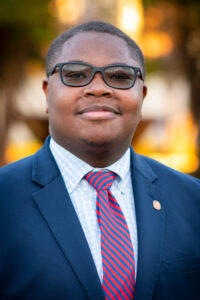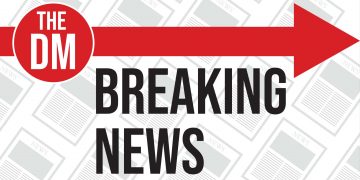
George Washington set virtually every standard for the American presidency and its norms. Perhaps most importantly, he established how he conducted his presidential Cabinet. His Cabinet included strong-willed personalities such as Thomas Jefferson, Alexander Hamilton, Edmund Randolph and Henry Knox.
Disagreements about government power, states’ rights, central monetary policy and the effective use of legal systems were common in their meetings. Washington encouraged these debates, relying on expert analysis to inform his decisions. This was the ideal of the president’s Cabinet — diverse perspectives and constructive debate leading to sound judgment.
Oh, how times have changed.
There is no clearer sign of the reality of President-elect Trump’s impending term than his flurry of Cabinet announcements. A veritable game of spin-the-wheel, his picks include a director of national intelligence with no experience in deep intelligence, Tulsi Gabbard.
His nominee for secretary of defense, Pete Hegseth, is a former talk show host who paid a confidential financial settlement to a woman who accused him of sexual assault, according to his lawyer, and advocated to release service members accused of war crimes. While a veteran, Hegseth lacks leadership experience in managing Pentagon operations. Then there’s the attorney general nominee, Matt Gaetz, who has less than four years of legal practice, faced federal sex trafficking investigations. He was also the subject of a Republican-led ethics report; two days before its release, Gaetz decided to resign from Congress.
And the list goes on. Linda McMahon, a former WWE CEO with no experience in education or policymaking — aside from a 2009 appointment to the Connecticut State Board of Education and a 2017-2019 stint as the 25th administrator of the Small Business Administration — has been named secretary of education. Kristi Noem, a governor from a northern state with no border issues or immigration policy experience, is poised to become secretary of homeland security. The appointments are so extreme that even some Republicans have balked. For instance, Sen. Susan Collins called Gaetz “not a serious nominee.”
Despite the availability of qualified candidates who align with Trump’s policies, his choices seem driven by one criterion: loyalty. This pattern aligns with Trump’s history.
In 2016, as a relative newcomer to Washington, President Trump made many appointments that sailed through due to the appointees’ experience and expertise. By the end of his term in 2021, however, only seven of his original 24 Cabinet members remained, with many positions changing hands three or more times.
Of the 44 members who served during his first term, only four endorsed his return. This is understandable, given that many Cabinet members described Trump as irrational, unwilling to accept advice that contradicted his instincts and generally disdainful of establishment expertise.
Donald Trump wanted a Cabinet that was the antithesis of Washington’s model, and if he gets his picks this time, it seems he’ll achieve exactly that — with far less resistance.
Edward Wilson is a sophomore public policy leadership major from Jackson, Miss.



























